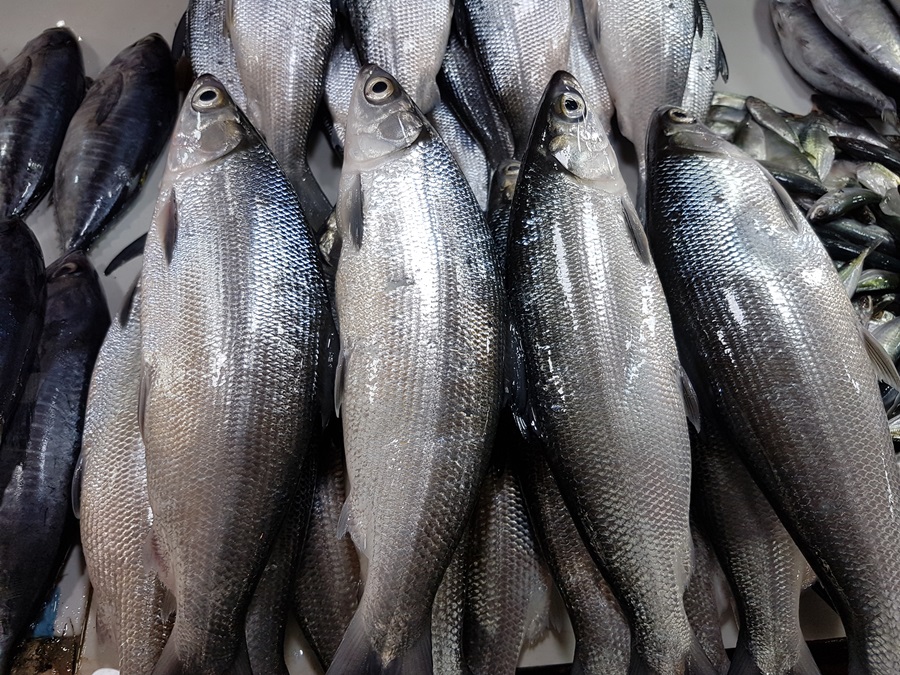South Indian state Kerala is developing a blockchain-based system to monitor and track the harvesting and distribution of milk, fish, and vegetables. The project is to be helmed by state think-thank Development and Innovation Strategic Council (K-DISC). The agency is looking to utilize blockchain technology and the Internet of Things (IoT) to meet its goals, Cointelegraph reported.
Under this new system, each section of the supply chain will be tagged with a unique ID number using Radio Frequency Identification (RFID). This will ensure that the shipment of a product will be monitored from when it leaves the source, through distribution, and all the way to the last component of the supply chain.
For instance, a batch of milk will be slapped with an RFID tag where it was produced, when it goes through distribution, and when it reaches the general consumer markets. Moreover, the temperature within the refrigerated trucks will also be monitored so that if a certain batch is spoiled, the supply command will know exactly where the process went wrong.
A somewhat similar process will be done to the transportation of fish. Fish landing areas will be connected to a network via geo-coded images which will make it possible for real-time tracking and validation of goods throughout the distribution process. This takes place from fishing farmlands to the markets where customers will eventually purchase the goods.
Aside from the distribution, the blockchain platform will also be used to provide tamper-proof evidence to protect crop insurances and farmers. Since the system tracks the whole delivery process from a product’s origin to the point of sale, it can accurately provide immutable data on whether or not a certain batch of goods was lost due to natural disasters like flood or famine.
This, in turn, will make it easier for farmers to claim losses from insurances if their crop was lost due to force majeure or other unforeseen factors. Additionally, it will also eliminate the need for a middleman to dispute these cases, making the insurance claiming process a lot smoother.



 Alphabet’s Massive AI Spending Surge Signals Confidence in Google’s Growth Engine
Alphabet’s Massive AI Spending Surge Signals Confidence in Google’s Growth Engine  Tencent Shares Slide After WeChat Restricts YuanBao AI Promotional Links
Tencent Shares Slide After WeChat Restricts YuanBao AI Promotional Links  Instagram Outage Disrupts Thousands of U.S. Users
Instagram Outage Disrupts Thousands of U.S. Users  Elon Musk’s SpaceX Acquires xAI in Historic Deal Uniting Space and Artificial Intelligence
Elon Musk’s SpaceX Acquires xAI in Historic Deal Uniting Space and Artificial Intelligence  SpaceX Updates Starlink Privacy Policy to Allow AI Training as xAI Merger Talks and IPO Loom
SpaceX Updates Starlink Privacy Policy to Allow AI Training as xAI Merger Talks and IPO Loom  SoftBank Shares Slide After Arm Earnings Miss Fuels Tech Stock Sell-Off
SoftBank Shares Slide After Arm Earnings Miss Fuels Tech Stock Sell-Off  Amazon Stock Rebounds After Earnings as $200B Capex Plan Sparks AI Spending Debate
Amazon Stock Rebounds After Earnings as $200B Capex Plan Sparks AI Spending Debate  SpaceX Prioritizes Moon Mission Before Mars as Starship Development Accelerates
SpaceX Prioritizes Moon Mission Before Mars as Starship Development Accelerates  Sony Q3 Profit Jumps on Gaming and Image Sensors, Full-Year Outlook Raised
Sony Q3 Profit Jumps on Gaming and Image Sensors, Full-Year Outlook Raised  SpaceX Reports $8 Billion Profit as IPO Plans and Starlink Growth Fuel Valuation Buzz
SpaceX Reports $8 Billion Profit as IPO Plans and Starlink Growth Fuel Valuation Buzz  Sam Altman Reaffirms OpenAI’s Long-Term Commitment to NVIDIA Amid Chip Report
Sam Altman Reaffirms OpenAI’s Long-Term Commitment to NVIDIA Amid Chip Report  TSMC Eyes 3nm Chip Production in Japan with $17 Billion Kumamoto Investment
TSMC Eyes 3nm Chip Production in Japan with $17 Billion Kumamoto Investment  Anthropic Eyes $350 Billion Valuation as AI Funding and Share Sale Accelerate
Anthropic Eyes $350 Billion Valuation as AI Funding and Share Sale Accelerate  Global PC Makers Eye Chinese Memory Chip Suppliers Amid Ongoing Supply Crunch
Global PC Makers Eye Chinese Memory Chip Suppliers Amid Ongoing Supply Crunch  Nvidia Nears $20 Billion OpenAI Investment as AI Funding Race Intensifies
Nvidia Nears $20 Billion OpenAI Investment as AI Funding Race Intensifies  Nintendo Shares Slide After Earnings Miss Raises Switch 2 Margin Concerns
Nintendo Shares Slide After Earnings Miss Raises Switch 2 Margin Concerns 





























